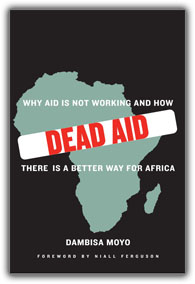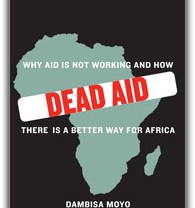The human psyche is interesting, not only because of how intricate it is, but because it plays into major consequences which are reflected in world events from day to day. These consequences can be seen as a dichotomy of poverty to prosperity, fame to retrogression etc.
When millions of dollars of aid are sent to third world countries in Africa, the consequences we see are: even more destitution in the long run, lethargy on part of corrupt governments and a growing epidemic in itself; corruption. All of these play right into the human psychology. The concept is simple, who will work, or use resources to their full potential if resources are presented to them on a silver platter, with no strings attached? In theory yes, aid is the epitome of philanthropy it’s an act that many a times helps restore ones faith in humanity, but that is momentary, a small instance of one thinking “that’s nice, I’ve done my part. Okay, I’m good now” but what about the long run? What about cutting the problem at its root, or even taking a look into the problem at its grass root levels?
Aid can be compared to a “trim” one gets at a hair salon, its damage control, and yes it does remove the problem areas from the surface, but it does not ‘eradicate’ the problem, which is why we have frequent visits to hair salons, to keep maintaining our faces/profiles. But take a look at this situation keeping sustainability in mind, does a “trim” sound like a sustainable idea? Well maybe in the context of hair, but what if this trim were applied to a country with an annual death toll reaching millions? – Not really.
We should change the definition of aid, instead of it being the act of giving large monetary donations to countries in need, aid should centre around the idea of locating the missing keystone of a problem, and fixing the bridge that is broken. The concept I’m delving into is similar to what Riders for Health propagate. The company found a critical point in offering medical aid to countries in Africa, a problem linked to a gross mismanagement of transportation mediums used by the NGO’s and volunteers. The company then proceeded to provide the service of fixing this kink, not by dumping large sums of money on the problem and walking away, but by getting involved and getting their hands dirty (maybe even literally) and fixing the gap between medical aid provision and transportation of medical goods or people. If this were the way aid was conducted we’d see a more tangible result in terms of improvement of health, and living standards in third world countries.
“Aid is dead” by Dambisa Moyo, according to me, is not the thought of eradicating aid, but rather an eye opener on what we should be doing apart from giving aid. Aid is needed in the absolute short run, to help pull out a country that is sinking, but the needs of a country after monetary aid is provided is often overlooked, and that is why in essence Aid can be considered dead, because what is money but a piece of coloured paper. The world needs action, not a whisper of a promise that money presents.
And so yes, I agree with Miss Dambisa Moyo, Aid truly is dead.



